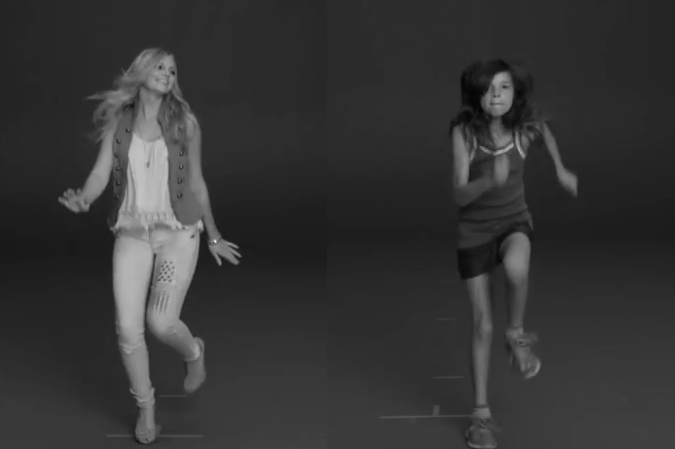
My sixth-grade volleyball team cringed every time I stepped up to serve. Weighing in around 85 pounds at the time, my skinny preteen limbs resembled uncooked spaghetti noodles and didn’t give me much power serving the bouncy volleyball over the net – underhand, nonetheless.
Clearly, I’ve never been very successful in the athletic department. I can’t even toss a frisbee in a straight line, but I’ve found my niche other places. It doesn’t stop anyone from reminding me that I “throw like a girl” when I do try, though.
I didn’t give the phrase much thought until a few weeks ago.
I know I am not alone when I say that I never watch the full advertisements before YouTube videos if there is a “skip ad” option. But recently, one caught my attention enough to make me pause and watch the whole three minutes instead of skipping ahead after five seconds to the music video I was searching for.
The ad was a commercial for the Always brand, titled “Like a Girl.” In it, teenage and young adult men and women were asked to do the first thing that came to mind when the director gave them an instruction. The director asked participants to “run like a girl,” “fight like a girl” and “throw like a girl.”
Then they asked 10-year-olds to do the same thing. And the results couldn’t have been more opposite.
The young adult group responded by running slowly and waving their arms around, fighting by flailing their hands in front of them and throwing without winding up or following through. The 10-year-olds, on the other hand, pumped their arms and ran as fast as they could, jabbed and punched like they were boxers and threw the imaginary ball as far as they could.
I watched the video three times in a row. It struck a deep chord with me. When did “like a girl” become so derogatory?
I don’t know when it became an insult, but I do know that it isn’t an insult.
One woman remarked at the end of the video, “Yes, I kick like a girl and I swim like a girl and I walk like a girl and I wake up in the morning like a girl because I am a girl. And that is not something I should be ashamed of.”
Amen, sister. But the phrase “like a girl” has become as ingrained in our speech as “raining like cats and dogs.”
While playing yard games with my family on the Fourth of July, someone commented a bad cornhole toss was “like a girl.” It was said in the spirit of family rivalry, and I am sure nothing derogatory was meant by it. But the social connotation of the phrase is clear: “Like a girl” is not as good as “like a boy” would be.
It’s time to take back that phrase, strip it of its modern offensive nature and make it something to be proud of – something extraordinary.
So yes, I run like a girl. I write like a girl. I tackle my little brother like a girl. And I serve a volleyball like a girl. And I am not ashamed of a single one of those things.
Baihly Warfield can be reached at warf3860@stthomas.edu.
